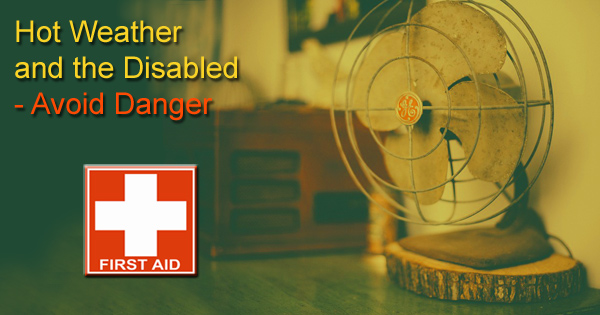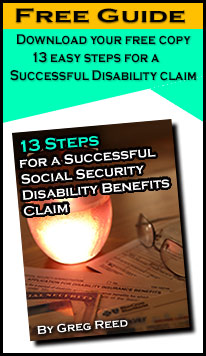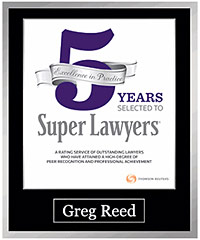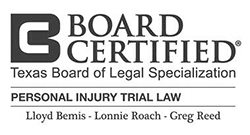Hot Weather and the Disabled – Avoid Danger
As hot weather once again arrives in Texas those with disabilities should be especially careful to avoid heat related illness.
Author: Attorney Lonnie Roach
As we slide into summer and temperatures rise we all need to be aware of the dangers of heat and sun exposure. Heat waves result in hundreds of deaths each year.

Heat waves result in hundreds of deaths each year. Certain factors place the disabled especially at risk for heat-related illness and death.
A heat wave occurs when the outside daily temperature exceeds the average maximum temperature for that location by 9 degrees F for more than 5 consecutive days.
What is considered normal will vary from one part of the country to another. In Austin, for example, the average maximum temperature in June is between 89 and 96 degrees while in Chicago the average maximum June temperature is between 77 and 83 degrees. The heat index is a measure of how hot it actually feels when relative humidity is added in with the air temperature. The temperature may be 96 degrees F., but with humidity it may feel like 105.
Extremely hot, humid weather affects a person’s body and its ability to cool down.
Heat stress or a heat related illness can develop when a person becomes overheated or loses too much fluid or salt through dehydration or sweating. Heat-related illnesses may manifest as heat cramps, heat exhaustion or heat stroke. Heat stroke, the most dangerous of the three, demands urgent medical attention and may result in death. Certain conditions pose an elevated risk for heat-related illness including heart disease, poor circulation, alcohol and drug use (including prescription drugs), mental illness, fever and obesity. Sunburn reduces the skin’s ability to shed excessive heat. Both the very young and older adults are at increased risk.
Signs of heat-related illness include:
- Headache, nausea and fatigue.
- Cool, moist skin, a weakened pulse, feeling faint.
- Sudden dizziness, pale, sweaty looking skin that is moist and cool to the touch, weakened pulse and rapid heart rate but normal body temperature.
- Heat cramps: Muscle spasms in the legs, arms or abdomen.
- Heat exhaustion: Thirst, giddiness, weakness, lack of coordination, nausea, and profuse sweating, cold, clammy skin, contracted pupils and vomiting.
- Heat stroke: Symptoms include a rapid pulse, an altered mental state, a high body temperature, headache, nausea, confusion, shallow breathing, dizziness, and unconsciousness. Heat stroke is a medical emergency that can result in permanent damage or even death. Urgent medical attention is required.
If you suspect a person is suffering from a heat related illness:
- Move the person to an air-conditioned or, at least, cooler location.
- To reduce the person’s body temperature use a water mister, fan, or sponge them.
- If the heat index temperatures are below the high 90’s, use a fan.
- Repeat the process, if the temperature rises again.
- Do Not give the person fluids.
- If heat stroke is suspected, seek medical attention immediately or call 911.
Contact a Social Security lawyer for a free consultation and see if you can get disability benefits. If you have been denied disability don’t give up! Call 512-454-4000 and get help today!
Although anyone can experience an adverse health impact caused by heat, some groups are more vulnerable than others.
This includes the poor, the homeless and the disabled. Certain factors place the disabled especially at risk for heat-related illness and death. These include limited income, restricted mobility, depending on others for assistance in daily activities, possible dementia, and not having access to transportation. Heat waves may cause power outages that affect electrically-powered medical equipment and elevators, leaving some disabled people without treatment or the ability to evacuate. People with limited incomes may skimp on air conditioning or not use it at all.
Hot weather can be especially challenging for the disabled, but it can be tolerated by following some simple guidelines:
- Wear light-weight, light colored, loose fitting clothing, preferably made of natural fabrics like cotton.
- Use air conditioning or spend more time in air conditioned places. Keep the temperature at or below 80 degrees. If you don’t have an air conditioner, invest in a room air conditioner and use fans to circulate inside air.
- Cover windows and stay indoors during the hottest parts of the day.
- Avoid direct sun.
- Limit or eliminate physical activity.
- Drink plenty of water and fluids that do not contain alcohol, and limit caffeinated beverages.
- Avoid heavy meals and do not use the oven.
- Take cool showers.
Heat related illnesses are serious.
If you are disabled and live alone, check in often with family or friends. It is very important to watch out for your health and those you care about during these hot summer months.
Disability benefits are an important source of income for those who are unable to work, especially during periods of extreme weather. If you not able to work due to accident or illness, you may be eligible for Social Security Disability or Long Term Disability benefits. If you have applied for benefits and been denied, contact the attorneys at Bemis, Roach and Reed for a free consultation. Call 512-454-4000 and get help NOW.
What to Expect in a Social Security Hearing After Being Denied Benefits
Misdiagnosed Stroke – You could be in danger
Seizure Disorders and Qualifying for Disability Benefits

Your Free Initial Consultation
At Bemis, Roach and Reed, if we can't help you, we will try to find the right attorneys for you.
We offer each of our prospective clients a free no obligation one hour phone or office consultation to see if we can help you and if you are comfortable with us. We know how difficult a time like this can be and how hard the decisions are. If we can be of assistance to you and help you find a solution to your issue we will even if that means referring you to another attorney.
Or simply call
512-454-4000
to schedule your
Free Consultation
Let's get you Started:
If you could provide us with some basic information about your claim we will get right back with you with a free case evaluation and schedule your Free Consultation Today.









